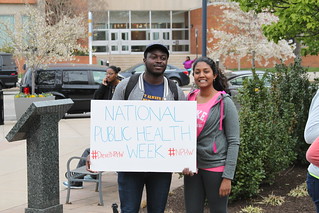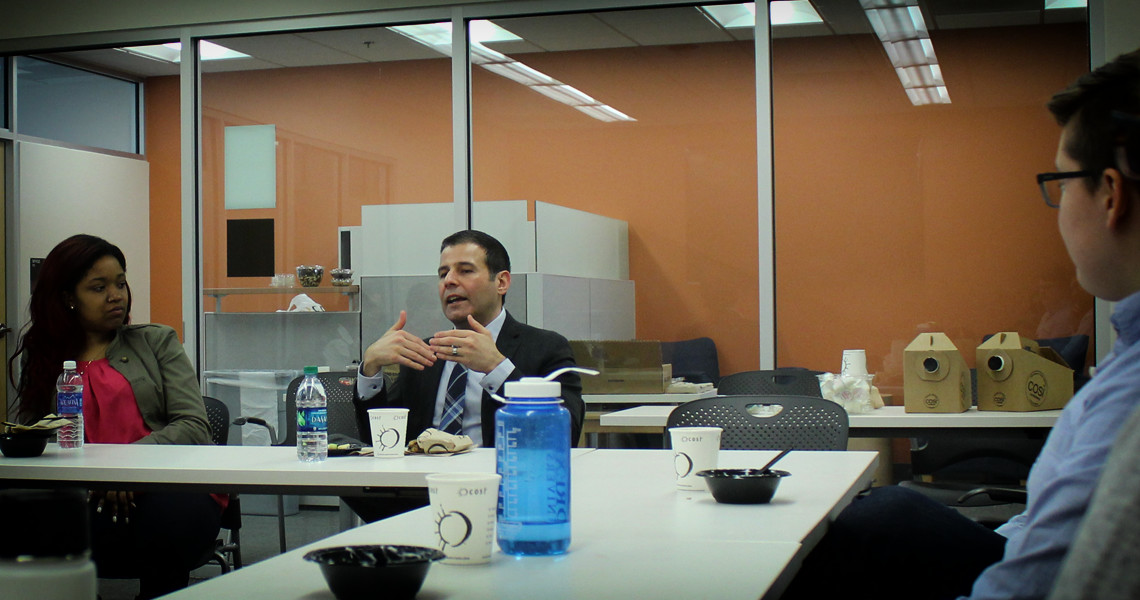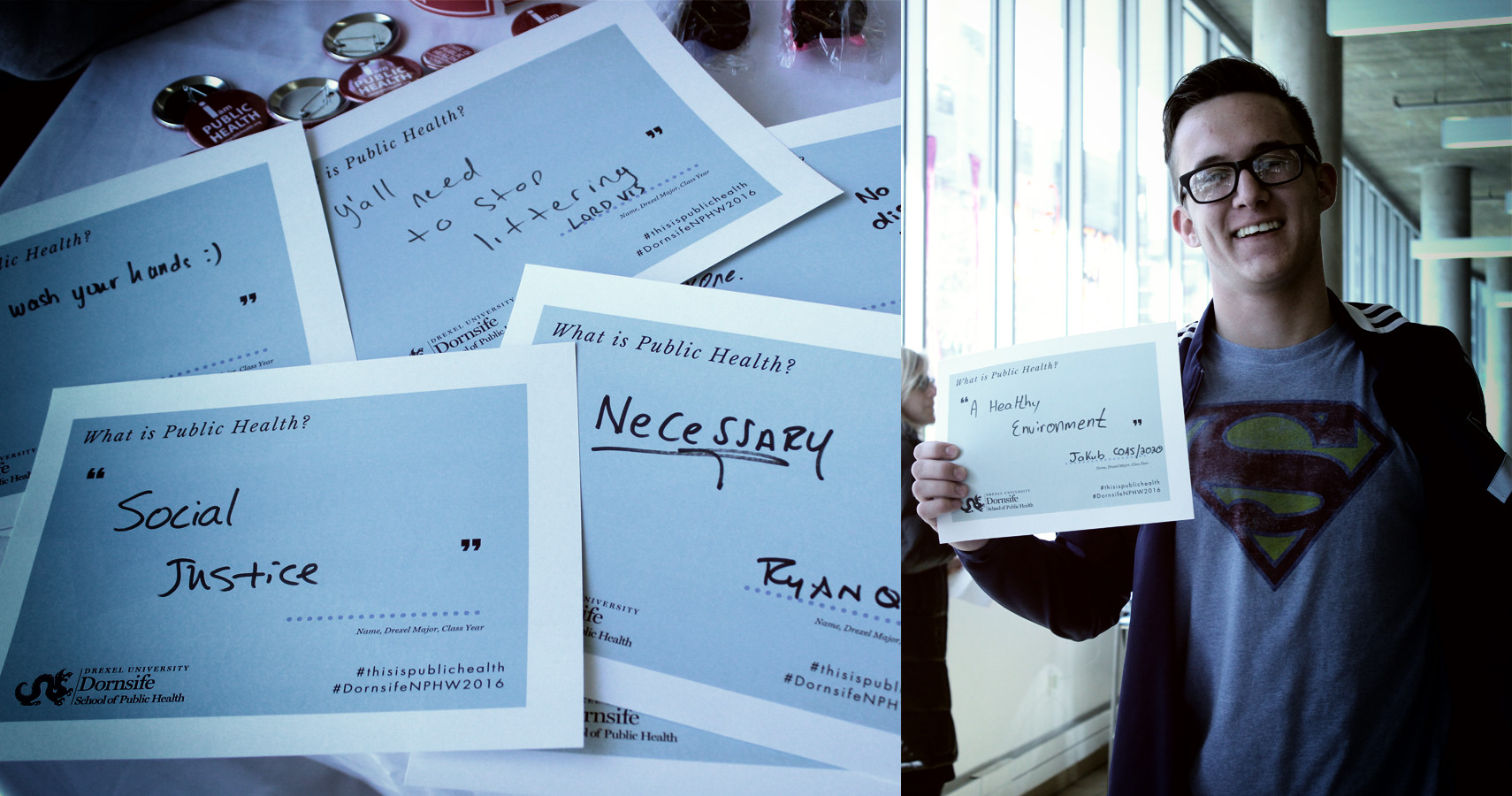National Public Health Week 2016
Health Equity and Elimination of Poverty Emerge as Underlying Issues to Address Pressing Public Health Challenges
April 12, 2016
National Public Health Week was a hit on campus, as hundreds of Dornsife students, faculty, community partners, and staff participated in more than a dozen events centered on themes of social justice and the health effects of climate change. From a teach-in on the Flint water crisis, to a hands-on workshop exploring how technology can advance public health, a variety of activities engaged the Drexel community in support of the American Public Health Association’s national efforts to inspire the “Healthiest Nation 2030.”

New Perspectives on Pressing Urban Health Topics
Lead in the city’s water supply is an urgent threat, but other intractable factors can have an even greater impact on the health of children in Flint, contended Drexel experts. At a teach-in deconstructing the Flint water crisis, an interdisciplinary panel shared environmental, epidemiological and medical data from Flint and Philadelphia that highlighted factors which have a large influence on children’s health in cities: poverty, quality early education, and exposure to childhood trauma and stressors.
Stressing concepts of health equity, environmental justice and disease prevention, Dornsife faculty Jerry Fagliano, MPH, PhD, chair of the Department of Environmental and Occupational Health, and Felice Le-Scherban, PhD, MPH, assistant professor in the Department of Epidemiology and Biostatistics, presented alongside Dan Taylor, DO, associate professor in the Drexel University College of Medicine and Director of Community Pediatrics and Child Advocacy at St. Christopher's Hospital for Children. They advised current and future public health leaders to support efforts that improve early childhood education as well as reduce poverty and childhood exposure to trauma and stress.
Later in the week, Sandra Bloom, MD, professor in Health Management and Policy, and DrPH candidate Megan Reed took on another challenging public health topic – gender-based violence – and inspired attendees to imagine a world where gender-based violence could be prevented.

Students, faculty and community members learned how public health practitioners are using novel data, open-source code, and interdisciplinary methods to improve population health and reduce health inequalities in cities. Spending a day with invited speaker Raed Mansour, Innovation Projects Lead from the Chicago Department of Public Health, students learned about the potential of novel methods such as predictive data analytics in targeting public health efforts more effectively.
Talks, events and other activities throughout the week encouraged campus conversations on varied topics, including a recently proposed soda tax in Philadelphia, a smoke-free campus initiative at Drexel, and ways to address the impending effects of climate change.
Building Public Health Awareness with Uptown Funk and Topical Tweets

In an effort to encourage healthy lifestyles for Drexel community members, Dornsife graduate and undergraduate students organized a Zumba-style flash mob in front of Mario the Dragon. A large group of students also stretched and meditated in a yoga session led by Anna Henderer, MPH '17, held at the Drexel Recreation Center to encourage mental wellness and health. Student leaders hope to plan similar opportunities in the future.
Nicole Vaughn, PhD, assistant professor in Health Management and Policy, took over the school’s @DrexelPubHealth twitter handle and participated in a national Twitter chat organized by the American Public Health Association. Vaughn’s comments on the importance of working with community members and adopting evidence-based approaches engaged chat organizers and participants alike. The #NPHWChat generated over 5,000 tweets in a little over an hour and had more than 1,000 participants. Vaughn’s comments were shared, clicked or shared by more than 130 people.

At the conclusion of the week, more than 50 Drexel students reinforced themes of social and environmental justice as they reflected on “what public health means” to them.